JOHN COLTRANE / “Catchin’ The Early Trane Mixtape”
I am a believer in the music of John Coltrane. 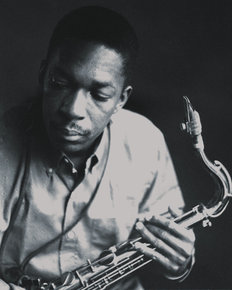
What I hear in Coltrane’s music is an unmistakable yearning, an altissimo reaching, both deeper and higher; deeper into the depths of himself, and far, far outward towards the out-a-sphere beyond himself.
He wanted, simultaneously, to be and to become. For some of us ‘be all you can be’ is merely a marketing cliché used to sell whatever, Coltrane however set a profound example for us John Coltrane set an example that challenged us to turn an abstract cliché into a factual description of how we live our lives.
Most of us know and embrace Coltrane’s phrase ‘love supreme.’ Many of us are not as familiar with his earlier music, especially those recordings Coltrane made outside of his association with Miles Davis. The general consensus is that the early work is nowhere near as moving as the mature Coltrane. Well, I believe that’s both true and not true.
True we don’t find many examples of Coltrane as a major composer, nor do we get Coltrane as a master leader of an ensemble that permanently shapes the direction of the music. And yet, when we listen, is it not true that there is a mother-lode of exquisite music in the body of Coltrane’s early work?
I divide Coltrane’s work into three phases: 1. The Prestige Years, 2. The Atlantic Years, and 3. The Impulse Years. Unlike the second and third phase, The Prestige Years includes work recorded on more than one label and work as a sideman under the leadership of others. Also, with the notable exception of Blue Train, a one-off Blue Note recording that comes at the end of the Prestige Years and before the Atlantic Years, the first phase of Coltrane’s recorded career does not contain any of his major compositions.
The reason is not simply because at that time he was still in his bop-influenced stage and was using standards and hard bop material. John Coltrane was aware of the value of his music and did not want to give up any of his publishing rights to Prestige records. Once Trane signed with Atlantic and had his own publishing, he released a torrent of new and significant compositions.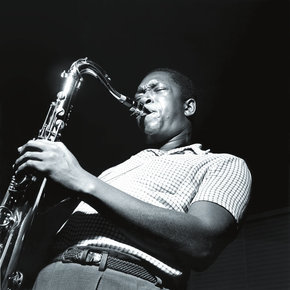
I think Coltrane presided over both the apogee and the eclipse of hard bop. Certainly with Giant Steps, Coltrane maximized harmonic possibilities then current in jazz. No one could play the changes as well as he did. But at the same time Trane also thoroughly explored the modal approach to jazz. It is interesting that two 1959 recordings exemplified hard bop and modal jazz.
Coltrane’s Giant Steps established John Coltrane as the deepest thinker of hard bop and set a standard that jazz musicians continue to revere over fifty years later. On the modal side of the divide, Coltrane’s participation in Miles Davis’ Kind Of Blue sessions were some of his most lyrical recorded performances and are also viewed as benchmarks for instrumentalists. Perhaps because Kind Of Blue was so closely followed by Giant Steps and My Favorite Things we sometimes overlook previous work, much of which was recorded only a year or two before Kind Of Blue.
This week we are focusing on Coltrane as a hard bop musician and as a lyrical player. One of the great paradoxes of John Coltrane’s music is that as ferocious a performer as he was in his mastery of the tenor saxophone, especially when he was playing blues or furious outpourings with drummer Elvin Jones, Coltrane nevertheless never ever loss his lyrical touch.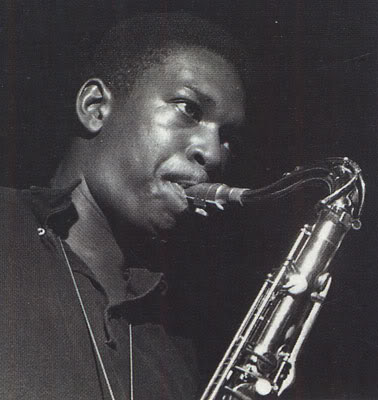
There are four ballads on this Mixtape and each one offers a master class in the post-Prez (Lester Young) approach to playing pretty on the tenor. One interesting non-ballad, "Ammon Joy," is unique in that it features Coltrane playing alto, which was his horn of choice when he started out. The session is led by Gene Ammons and includes Paul Quinichette on tenor, Pepper Adams on baritone and Jerome Richardson on flute, with Mal Waldron on piano, George Joyner on bass and Art Taylor on drums. They recorded on January 3, 1958.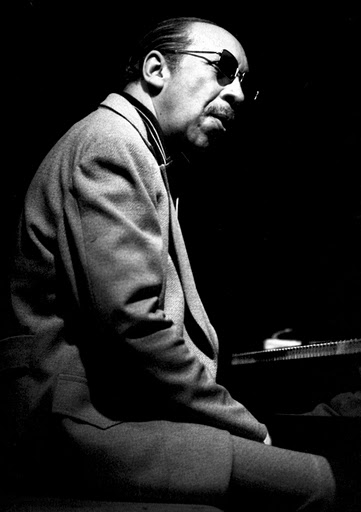
On the majority of these tracks the pianist is Red Garland. Red was a bandmate with Coltrane in the first great quintet of Miles Davis. If you listen to Red’s solo work, especially his chording, you will immediately hear a seminal precedent for McCoy Tyner’s major contribution to jazz piano. While Red Garland is justifiably celebrated for his block chords, don’t overlook the intricate fleetness and harmonic richness of Red’s single-note solo elements—especially check Red’s solo on “Good Bait.”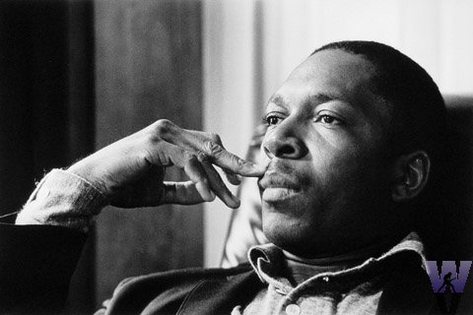
The closing two tracks on the Mixtape are from Blue Train (1957) and nothing more need be said as these are major sign posts in the recordings of John Coltrane’s jazz journey.
I remember going down to the sea in Provincetown, Massachusettes before dawn and waiting to see the sunrise. In cities surrounded by lights and buildings, the sunrise is not a special sighting, certainly nothing to wait for with eyes staring at the horizon, and because we have no clear view of the soft glory of the sun coming up, most of us urbanites don’t bother checking it out. But we should.
From time to time we should get up and catch the sunrise. Similarly, no matter our day-to-day listening habits, occasionally we should get up and catch the early Trane. There is an unduplicable beauty in those first sightings and those first sounds.
—Kalamu ya Salaam
Catchin’ The Early Trane Mixtape Playlist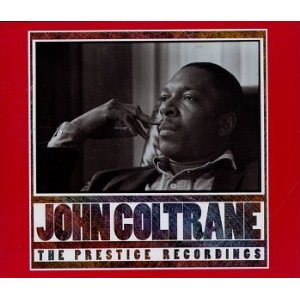
You’ve got a choice, if you want all of the tracks on this Mixtape except the last two cuts, which are on Blue Train, you can get individual albums or you can get the TheComplete Prestige Recordings boxset. I favor the boxset, but I would because I’m a Coltrane freak. 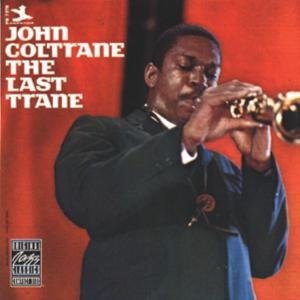
01 “Come Rain Or Come Shine” – The Last Trane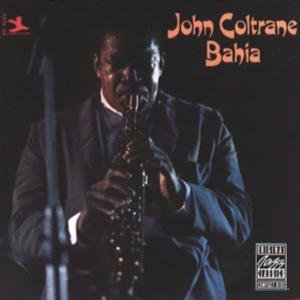
02 “Bahia” – Bahia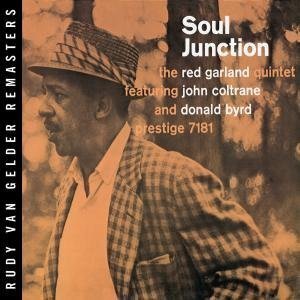
03 “I Got It Bad (And That Ain't Good)” – Soul Junction – Red Garland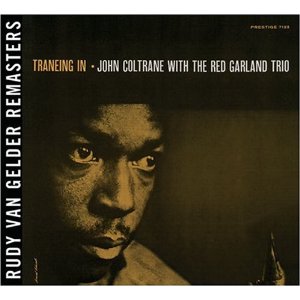
04 “Traneing In” – Traneing In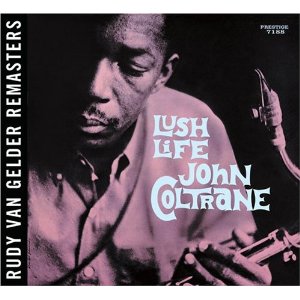
05 “Lush Life” – Lush Life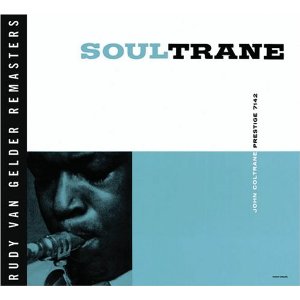
06 “Good Bait” - Soultrane
07 “My Ideal” - Bahia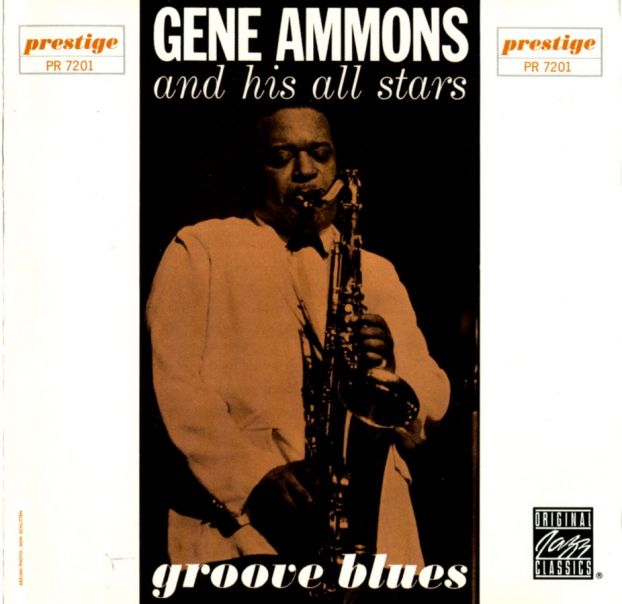
08 “Ammon Joy” – Groove Blues – Gene Ammons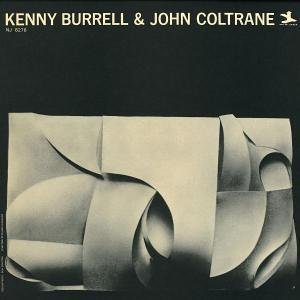
09 “Why Was I Born?” – Kenny Burrell & John Coltrane
10 “Freight Trane” – Kenny Burrell & John Coltrane
11 “Theme For Ernie” - Soultrane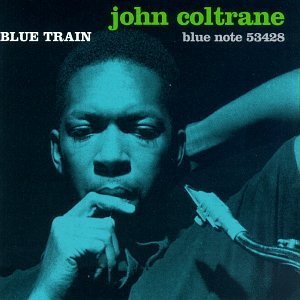
12 “Blue Train”- Blue Train
13 “Moment's Notice” - Blue Train
This entry was posted on Monday, March 8th, 2010 at 4:16 am and is filed under Classic. You can follow any responses to this entry through the RSS 2.0 feed. You can leave a response, or trackback from your own site.
Leave a Reply
| top |